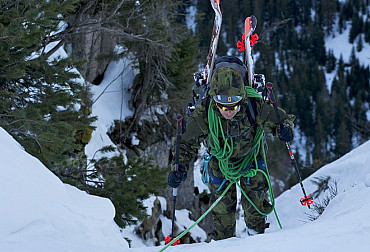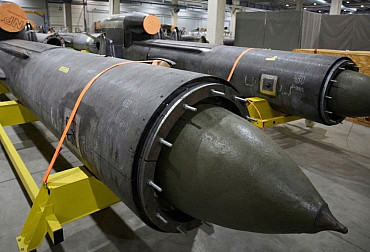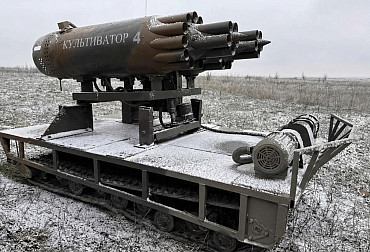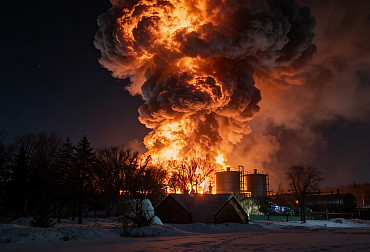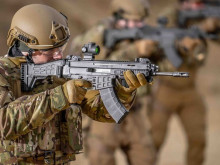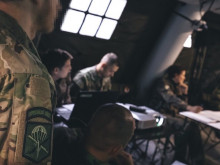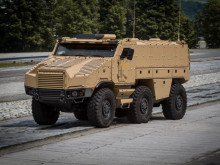Chemical experts in the Army: How individuals can protect an entire unit
The Czech Army does not have chemical troops only in Liberec, specialists in radiation, chemical and biological security can be found within most corps. Although these are only small units up to the size of a platoon, these experts are still indispensable helpers for every commander. Chemical and radiation reconnaissance specialists, or chemical observers, work together to protect soldiers from dangerous and often invisible threats.
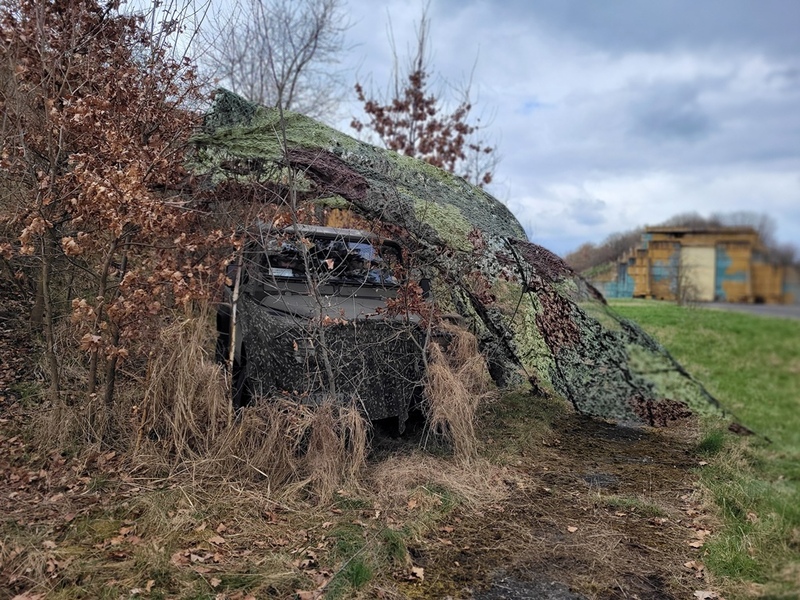 Picture: After taking the observation post, it is necessary to camouflage the vehicles | Ministry of Defense of the Czech Republic
Picture: After taking the observation post, it is necessary to camouflage the vehicles | Ministry of Defense of the Czech Republic
Last week, six chemists from the 14th Logistic Support Regiment completed this year's first training. Due to the epidemiological situation, it took place in such a limited number, that only two teams of chemical and radiation reconnaissance completed training directly in the area of Pardubice barracks.
"These soldiers help the commander to specify information about the chemical and radiation threat to their own units," master sergeant (OR-6) Ondřej M., instructor of the combat training group of the 141st Supply Battalion, noted. In practice it looks as follows: in case of reporting a so-called CBRN incident (chemical, biological, radiation or nuclear), the commander sends these soldiers into the field to clarify the situation so that he could respond adequately. "They work with special detection devices and, for example, monitor the leakage of chemical and industrial substances, the radiation situation or the non-specific detection of biological threats," he adds.
Time comes first
As elsewhere in the Army, rapid response is key here. "Chemical specialists have time standards for everything. From the preparation and camouflage of vehicles, to the deployment of chemical protection kits," master sergeant Ondřej M. explains.
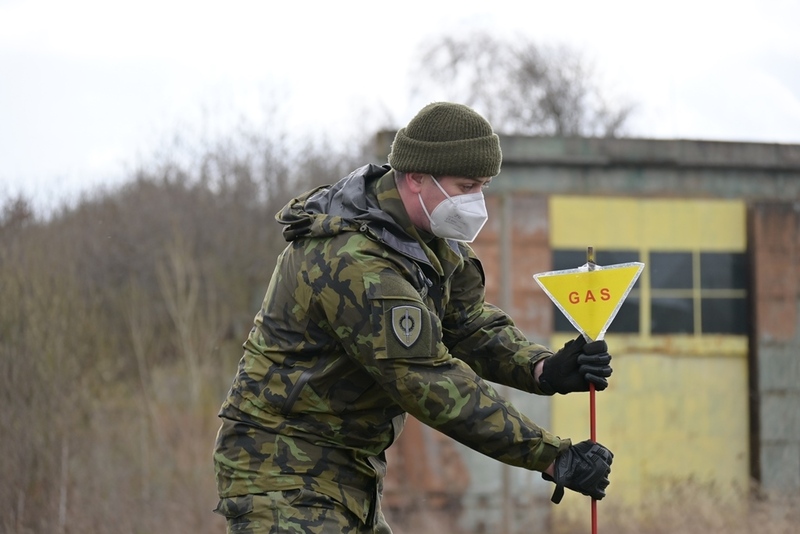 Picture: Instructor readying a chemical threat sign | Ministry of Defense of the Czech Republic
Picture: Instructor readying a chemical threat sign | Ministry of Defense of the Czech Republic
The filter protective cover (FOP-96) must be worn within nine minutes in winter, in summer the tables will add two extra minutes. The activity in a protective suit has its specifics, to which every soldier must get used. Nowadays, medics also experience something similar. "The chemist has to adapt to poorer visibility and limited mobility. For example, protective gloves significantly reduce fine motor skills, and this initially makes it difficult for many to handle the device. However, it just takes patience and a little practice," master sergeant Ondřej M. describes some of the pitfalls of movement in the protective suit.
Information on incidents saves lives
The chemists report the information obtained from the reconnaissance and observation to the superior level as soon as possible. In the event of a real threat, these reports can save lives. They send so-called CBRN messages via radio or data ports. Different types of messages are specified for individual types of incidents, and are formed of abbreviations and codes. "To master them, soldiers must not only complete a professional course, but also regularly practice sending and receiving them," master sergeant Ondřej M. says.
CBRN reports are unified for NATO, which is their great advantage. "We lead soldiers to be able to function internationally as well. They also manage communication and messaging in English and it does not cause them any difficulties," he praises the soldiers.
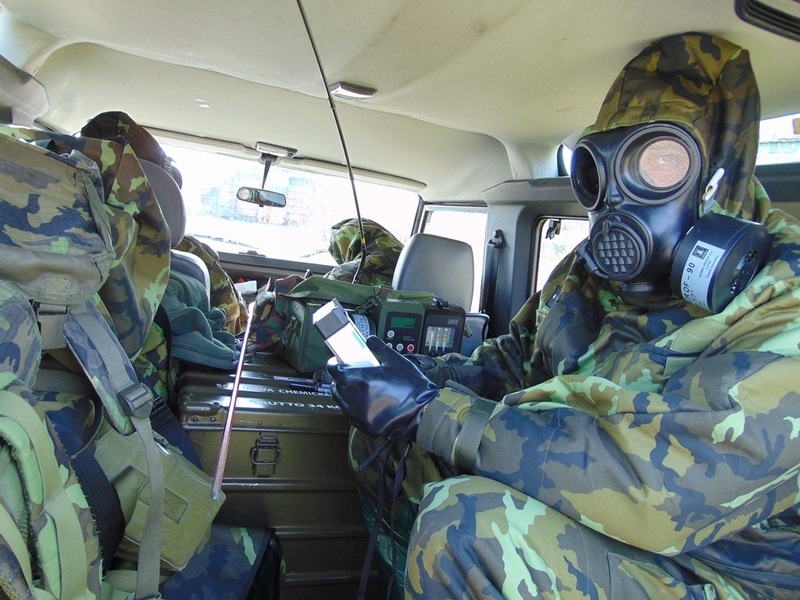 Picture: Chemical specialist uses detection devices for reconnaissance | Ministry of Defense of the Czech Republic
Picture: Chemical specialist uses detection devices for reconnaissance | Ministry of Defense of the Czech Republic
During the exercise, the soldiers also focused on searching buildings, where one team was to find, among other things, an unspecified chemical substance, determine its type and mark it for possible collection. Another team of specialists was to break into the old boiler room and look for a simulated source of nuclear radiation in the smoky space. "Exploring buildings is one of the special tasks and requires some practice and mastery of professional issues, including the manipulation of detection devices. The soldiers coped with all the model situations at a very good level during the exercise," master sergeant Ondřej M. said at the end of the training.
"My intention is to continue this type of training and further develop the skills of our specialists, who are a very valuable and indispensable source of information for the CBRN threat to the unit. I welcome the activity of instructors and their effort to constantly improve the soldiers from a professional point of view and to move them to more demanding tasks within the training. These include reconnaissance of buildings. Due to the fact that the modern battlefield is increasingly moving to built-up areas, we must also be prepared for threats of this type," Colonel of the General Staff Miroslav Horáček, commander of the 14th Logistic Support Regiment, assesses the training and importance of chemical specialists in the unit.











